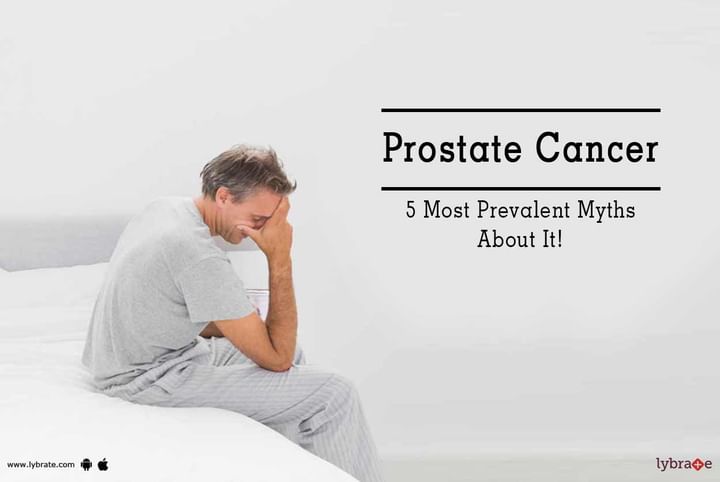Prostate Cancer - 5 Most Prevalent Myths About It!
Even though Prostate cancer is one of the most common types of cancer among men and a lot of research has been conducted towards its understanding, it still remains one of the least talked about forms of cancer. This can lead to a lot of confusion and misinformation that gives rise to a number of myths associated with the disease. Some of the most common myths about prostate cancer are:
1. It occurs only in old men
Although the risk of developing prostate cancer does increase with age, especially after 60-65 years of age, it can develop at any age in a man’s life. Ageing cells are more susceptible to mutations and hence more susceptible to cancer but other factors such as genetics, geographic location, overall health, lifestyle, etc. can play a major role in whether someone stands a chance to get prostate cancer.
2. It is a slow-growing cancer
Research has discovered 29 different types of prostate cancers, each of which behaves a little differently from others – some are very fast growing and aggressive while others are slower in developing. Prostate cancer also tends to be more aggressive in younger men than older men; aggressive cancers metastasize faster, i.e. spread to other parts of the body quicker and progress rapidly. Therefore, it is important not to ignore any initial symptoms and consult a doctor as quickly as possible to have the best shot at successful treatment.
3. You can’t get prostate cancer if no one in your family had it
While having a family history of prostate cancer does significantly increase the risk of a man developing prostate cancer himself, it can also be diagnosed in men who have no genetic history or predisposition. It depends not only on genetics but also on a number of other factors which can contribute to prostate cancer.
4. If you don’t have any symptoms, you don’t have cancer
Prostate cancer is known to be one of the most asymptomatic forms of cancer and even when symptoms are present, they are very often misinterpreted as something else. The most common symptoms are: needing to urinate frequently, difficulty in urinating, blood in urine or semen, erectile dysfunction and pain in the pelvic area. Although all of these symptoms don’t always mean cancer, it is best to go to the doctor in case you experience these symptoms.
5. Prostate cancer is inevitable – you can’t prevent it
It is true that genetics, ethnicity and age do increase the risk of prostate cancer in men. However, research has shown that lifestyle changes such as avoiding red meat in your diet, regular exercise and preventing stress, do have an effect on the genes that regulate growth of tumours.
Hence, you should stop believing everything you hear or read on the internet, they may not always be true. Any symptoms out of the ordinary should be immediately checked out by your doctor. Do not ignore unusual symptoms – they might prove to be very costly later in life.



+1.svg)
